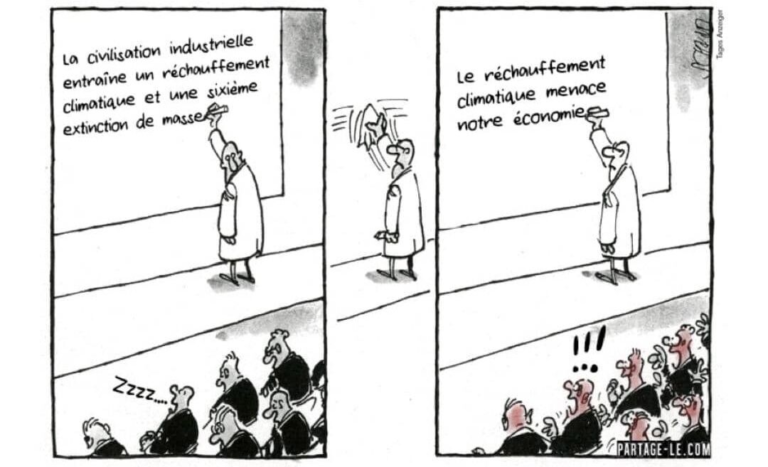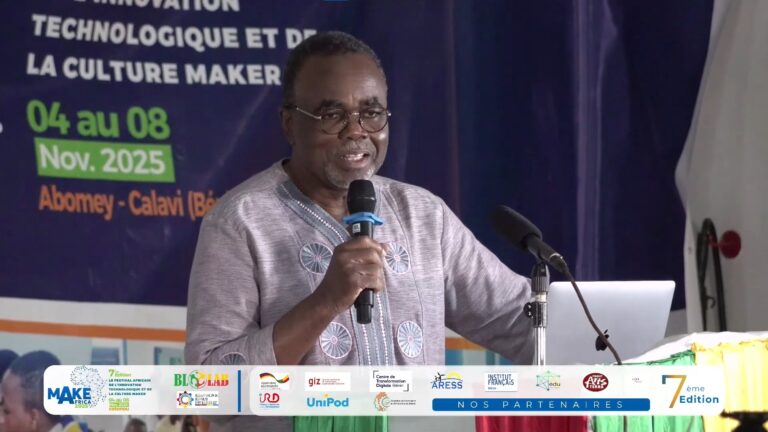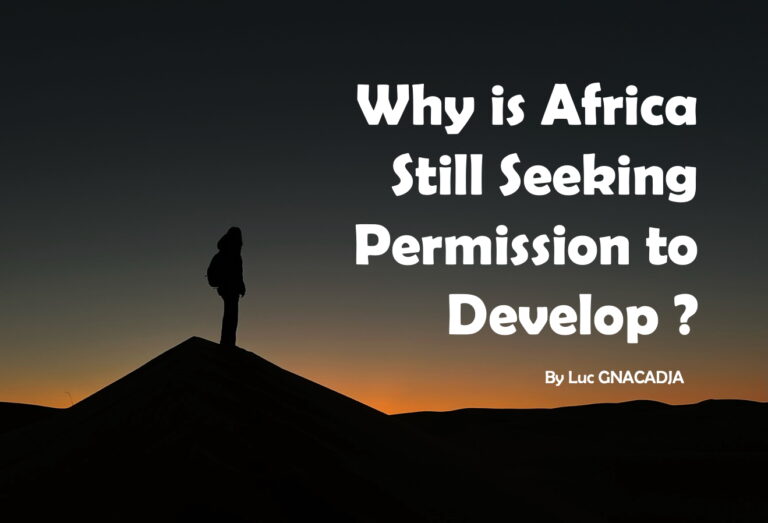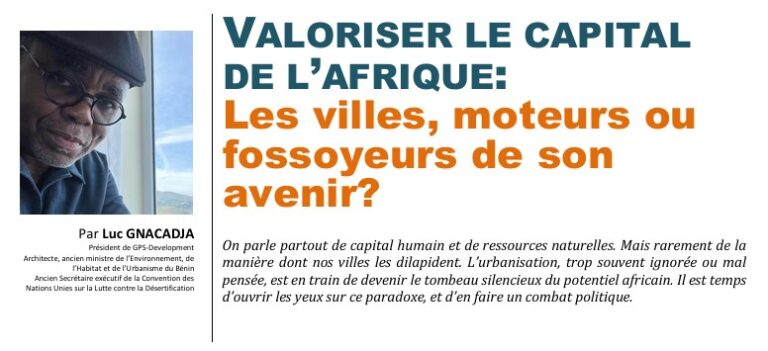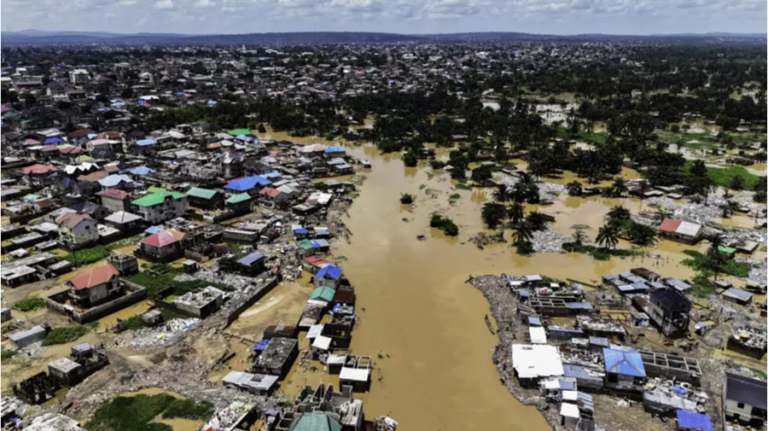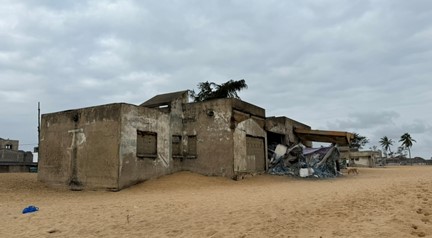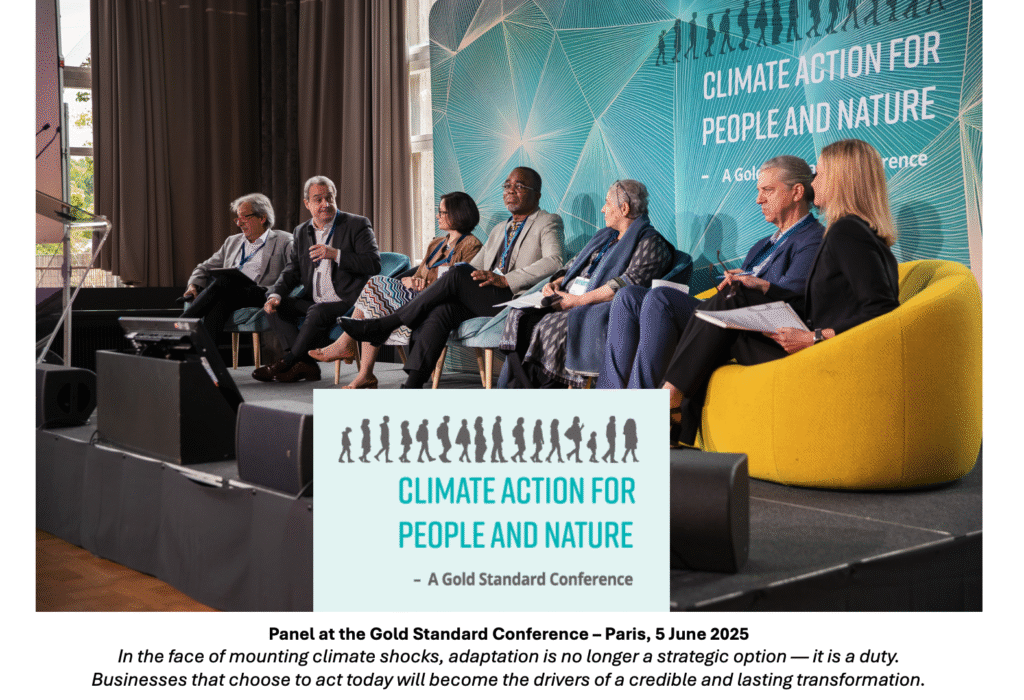
Climate Resilience:
Time to Lift the Corporate Blindfold
By Luc Gnacadja*
This is a moment of reckoning.
Scientific evidence is no longer ambiguous. It is stark. It is unequivocal. According to recent findings led by James Hansen and colleagues, even if we halted all greenhouse gas emissions today, the Earth is already on a trajectory to exceed 2°C of warming. This path is determined by what’s already in the atmosphere — not what is yet to come. This is not just a policy challenge, it is a planetary reckoning.
In such a context, the central question is no longer how to avoid the storm, but how to survive it with dignity and justice. That is why I say this clearly:
Adaptation can no longer be treated as the “next phase” of climate action. It is the now of climate action.
And yet, in far too many boardrooms, adaptation remains a footnote. It’s mistaken for a matter of corporate charity to be addressed through CSR, as a discretionary line item at the edge of the strategy. But make no mistake: adaptation is not a development add-on. It is the fiduciary duty of every corporate board.
Because the risks we face are not hypothetical — they are already material.
Supply chains are breaking. Insurance premiums are rising, and some companies are withdrawing from high-risk sectors or regions. Assets are being stranded. The climate pipeline holds greater disruption ahead, and the economic costs are staggering: nearly $2 trillion in global losses from extreme weather over the past decade, according to Oxera[1]. And that figure only captures the surface — not the cascading impacts on productivity, livelihoods, and ecosystems.
I used to call for every tonne of CO₂ mitigated to deliver adaptation value. Now, I believe we must go further.
Every decision — public or private — must now be screened for resilience.
And every actor — including businesses — must report not only how green they are, but how prepared they are.
Where Carbon Markets End and Human Survival Begins
If mitigation is our first line of defense, then adaptation is our collective defiance — our refusal to let the vulnerable be sacrificed. This is where Article 6.8 of the Paris Agreement must move beyond the jargon of climate summits to inform real-world action.
Carbon markets can reduce emissions — but they can’t shield communities from hunger, drought, or disaster. Early warning systems, food security, and water resilience aren’t market assets — they’re lifelines. These vital systems may not carry a price tag, but they are priceless. They deserve robust funding — and global recognition.
Article 6.8 is not a footnote to Article 6. It is its moral and ecological counterbalance.
Adaptation: The Pathway for Sustainable Business Growth
The World Resources Institute’s landmark paper, “The Climate Adaptation Investment Case”[2], lays it out clearly. Climate adaptation is not only a strategic necessity — it yields a triple dividend:
- Risk Management — Protects businesses from escalating climate shocks.
- Economic Returns — Every dollar invested in adaptation can yield over $10 in benefits.
- Market Opportunities — Unlocks innovation in resilient infrastructure, technologies, and services.
Let’s be clear: integrity in climate action must now include adaptation. Trusted standards and reliable data are essential. Business responsibility in adaptation is not optional; it is central to the credibility of climate action for people and nature. Any business that neglects adaptation undermines not only the trust of its stakeholders, but the credibility of climate action itself.
Leadership Is Rising — From the Global South
Perhaps the most inspiring lesson of all comes from those on the frontlines. Rwanda is integrating climate risk into every national investment decision. Countries such as Benin, Senegal, and Cambodia are among more than 30 nations implementing the UNCDF-led LoCAL (Local Climate Adaptive Living) mechanism — recognising the value of channeling climate finance and adaptation investment to where it matters most: the local level, while empowering municipalities in the process. India, meanwhile, is scaling nature-based, community-led adaptation.
These countries are not adaptation laggards. They are charting a new path of sovereign climate leadership.
Gold Standard’s Role in Defining Adaptation Integrity
At Gold Standard, we built our reputation on integrity in carbon markets. But in a world racing toward — and beyond — 2°C, carbon mitigation with co-benefits is no longer enough.
We must now do for resilience what we once did for carbon:
- Develop credible, trusted methodologies
- Certify adaptation outcomes
- Create new instruments like Adaptation Benefit Units and operationalize Article 6.8
- Enable companies and governments to measure not just avoided emissions — but averted suffering
Because people and nature are not abstractions. They are already being tested by the warming we could not prevent.
Now is the time to turn integrity in climate action into measurable impact.
To make adaptation a central pillar — not a side note — of that integrity.
To become the standard-bearers of the resilience we must build.
Businesses that act now won’t just survive, they’ll lead the transformation toward a more just, resilient, and future-ready world.
*Luc Gnacadja is a board member of Gold Standard,
President of GPS-Development, former Executive Secretary of the UNCCD,
and former Minister of the Environment and Urban Development of Benin.
[1] Oxera (2024), The Economic Cost of Climate-Related Extreme Weather, November 2024. Accessible at: oxera.com
[2] World Resources Institute (2024), The Compelling Investment Case for Climate Adaptation. Available at: wri.org


